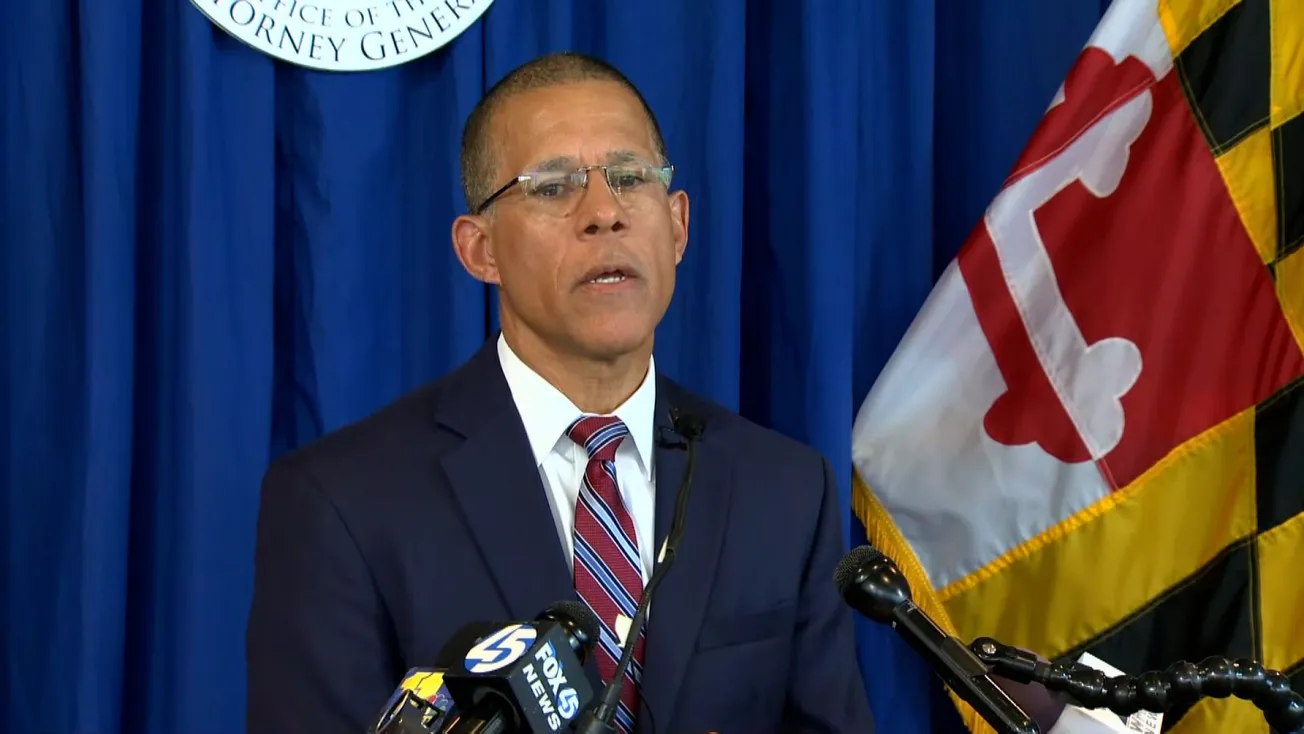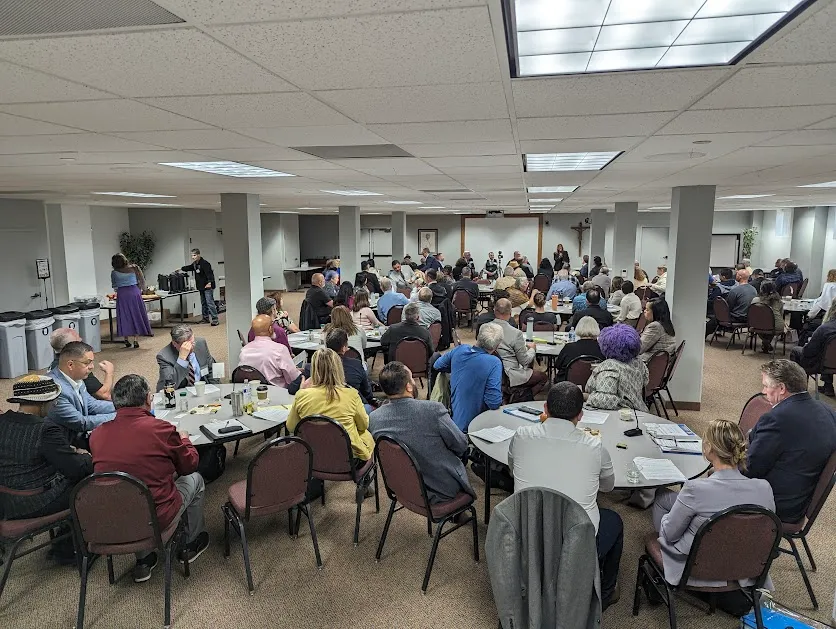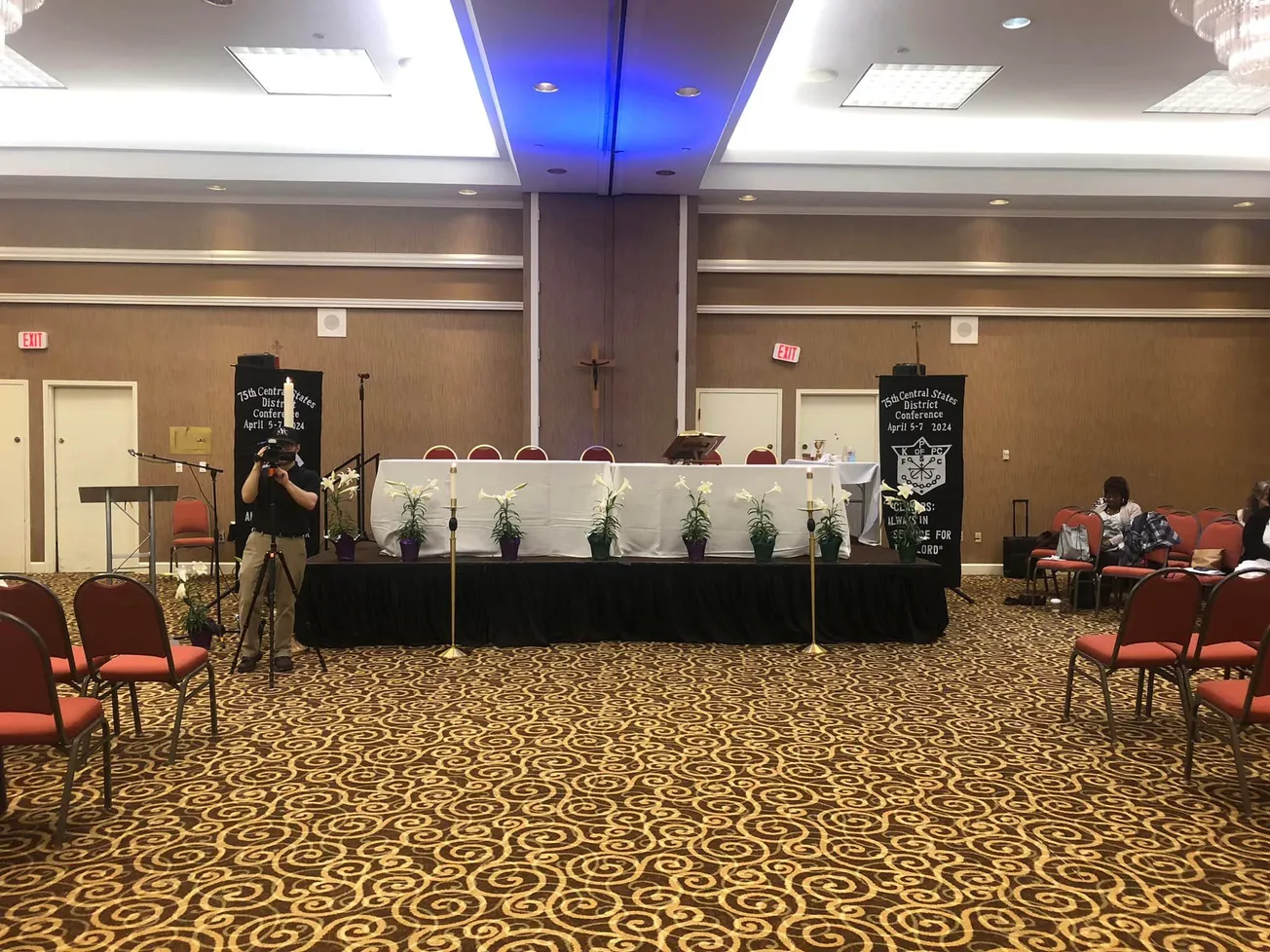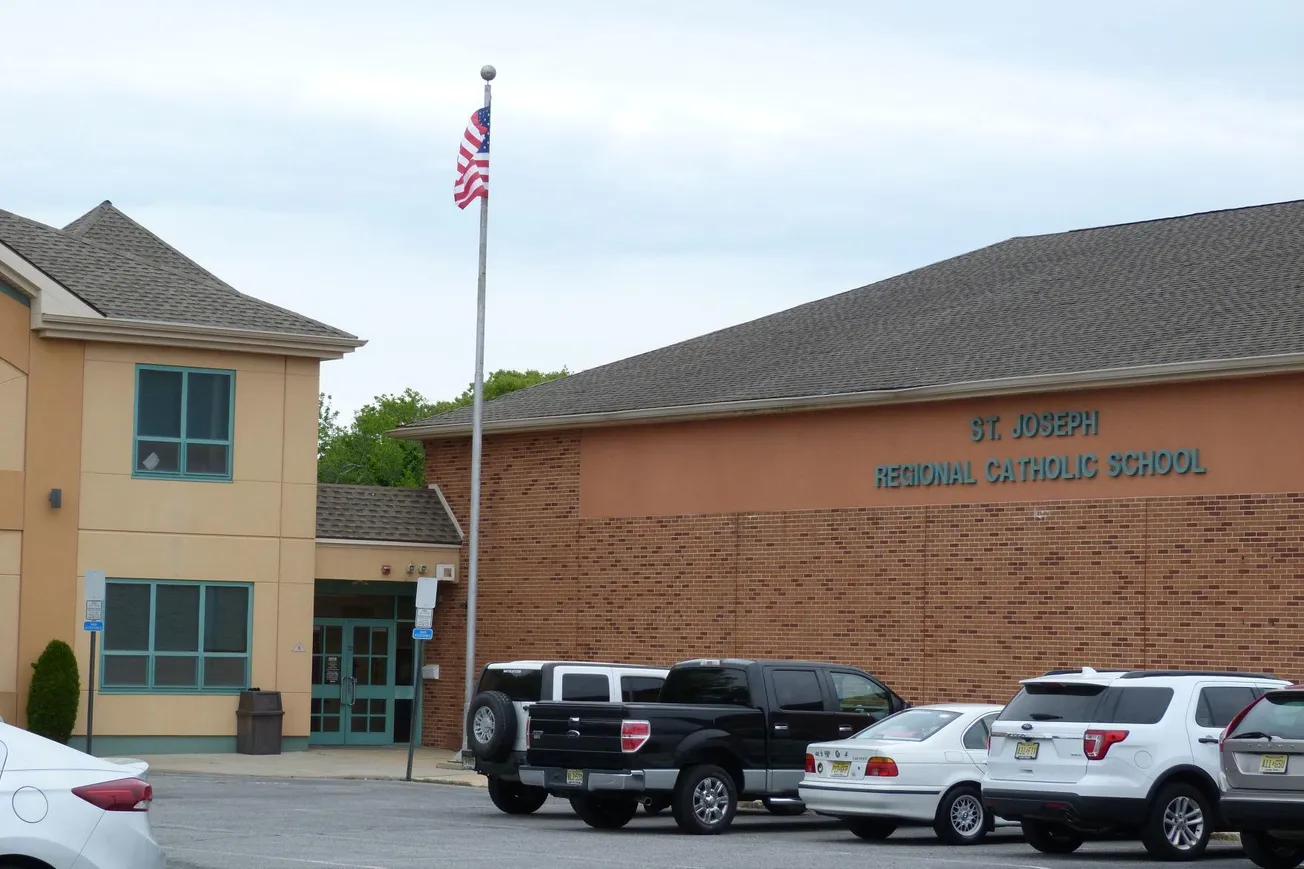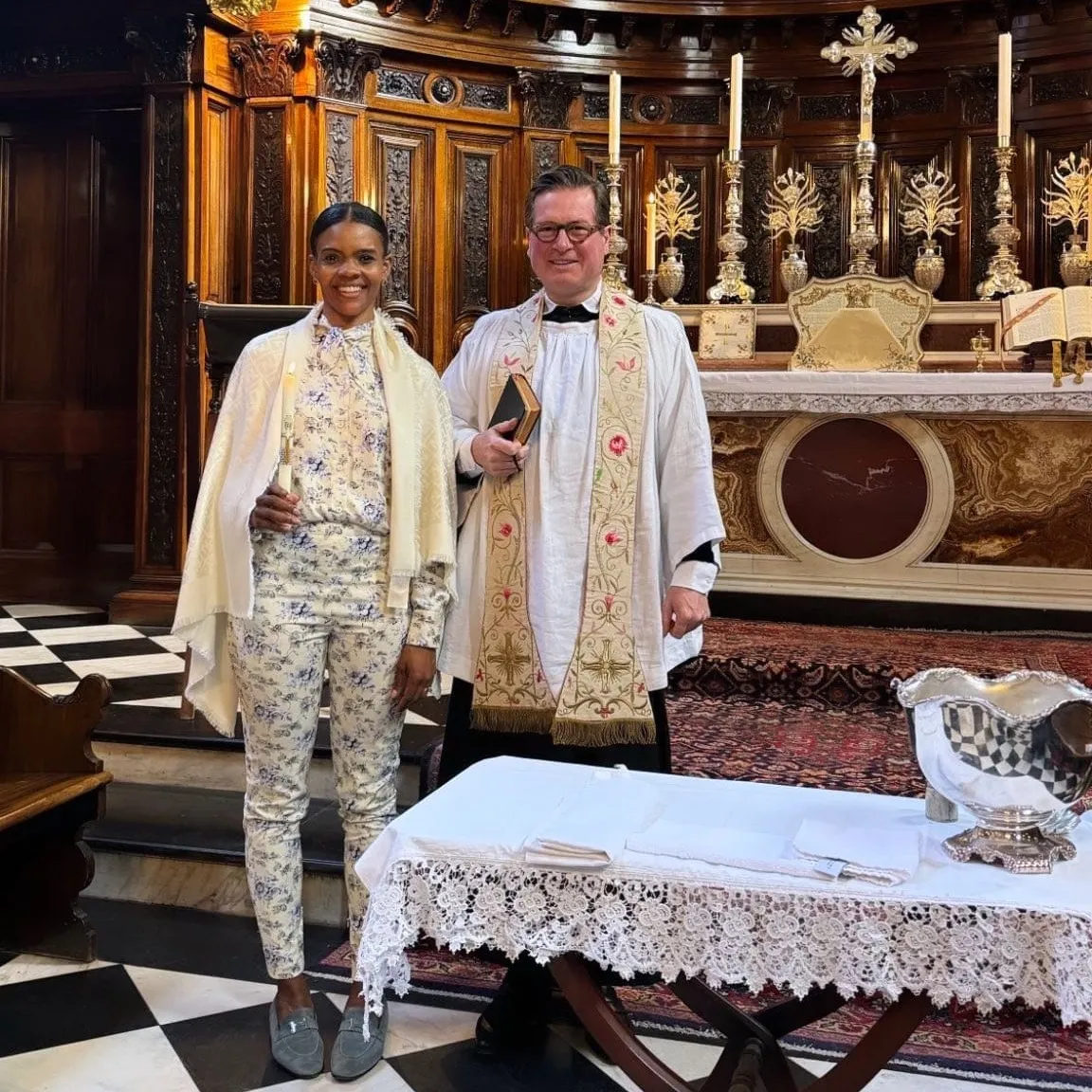by Glynis Kazanjian for Maryland Matters
The office of Maryland Attorney General Anthony G. Brown is actively seeking testimony from victims of child sex abuse in Maryland locations of the Archdiocese of Washington and the Diocese of Wilmington for its ongoing probe into the Catholic Church.
“Our investigations into the Archdiocese of Washington and the Diocese of Wilmington, Delaware, are ongoing,” Brown’s office said in a statement provided to Maryland Matters this week.
“We are grateful to all survivors who have come forward and we encourage those who haven’t yet, but may be ready to do so now.”
In April 2023, Brown’s office released a 463-page interim report on its investigation of child sex abuse by clergy in the Archdiocese of Baltimore. The investigation started under former attorney general Brian Frosh, a fellow Democrat, in 2018 following the airing of the 2017 Netflix series, “The Keepers,” which uncovered a history of child sex abuse in a Baltimore Catholic high school.
The outreach to potential victims in Maryland's two other Catholic dioceses is a sign that the state is expanding and intensifying its probe.
The Archdiocese of Washington includes five Maryland counties: Calvert, Charles, Montgomery, Prince George’s, and St. Mary’s, in addition to the District of Columbia.
The Diocese of Wilmington includes Cecil County and eight counties on Maryland’s Eastern Shore: Caroline, Dorchester, Kent, Queen Anne, Somerset, Talbot, Wicomico, and Worcester counties, in addition to all of Delaware.
In August, the Maryland Board of Public Works approved $1.1 million to add four attorneys and four staff to the attorney general's office, in part to expand the Catholic Church child sex abuse investigation.
In February, Brown's office reached out to Abbie Schaub, a lead figure in “The Keepers” and known as one of the “granny detectives,” who today advocates for the rights of child sex abuse victims. Brown’s office asked Schaub to send a message to potential victims in the Washington and Wilmington Dioceses to come forward and tell their stories to state investigators.
Schaub took to Twitter and the Facebook group she helps administer, which has over 150,000 members.
The attorney general's office initially intended to cover all three Catholic diocese areas in Maryland when it started its investigation in 2018.
After four years and hundreds of interviews and no resolution in sight for survivors, in January 2022—shortly after Brown, a Black Catholic, was elected attorney general—an investigator from the office notified some of the survivors that the focus had switched primarily to Baltimore, according to statements by sources involved in the investigation.
Part of the reason was the sheer volume of Baltimore cases, and victims' advocates have also said the investigation was understaffed. Some work in the Washington and Wilmington dioceses had already taken place, however.
While survivors welcome the news of the recent outreach of Brown’s office, many wonder what has taken so long.
Daniel “Buddy” Robson, 68, said he was 11 or 12 years old when he was allegedly abused by a Catholic Youth Organization basketball coach in Prince George’s County. Since the attorney general's investigation launched, he’s been interviewed twice by investigators—once in 2019 for three hours and again in 2021 on Zoom.
“When I was interviewed in 2021, they told me at that point they were concentrating on the Archdiocese of Washington,” Robson said in an interview. “That was three years ago.”
Robson said he wonders why the Maryland investigation has taken longer than some other states.
“It's frustrating in the sense that you look at other state [investigations] like Illinois and Pennsylvania, which were completed in a much shorter period of time,” he said. “It’s taken a lot longer than I feel it should have. The people in the [Washington] diocese have a right to know.”
Kurt Rupprecht, 53, an Eastern Shore man who grew up in Wicomico County, said he was sexually abused at the age of 9 by a Catholic priest assigned to St. Francis de Sales Catholic Church in Salisbury, a part of the Wilmington Diocese.
Rupprecht spoke with the AG twice: first in 2018 and again in 2021.
After he testified to the alleged abuse, which he said took place following a long grooming period, Rupprecht said he was told by the attorney general's office that his case was not strong enough to move forward with a criminal prosecution because it amounted to a "he said, he said" situation. Rupprecht was told prosecutors could not compel the alleged abuser to testify and therefore felt they were unable to pursue charges.
At the time, there was a statute of limitations on civil cases in Maryland for child sex abuse victims, which barred Rupprecht from filing civil litigation.
But in 2023, Maryland passed the Child Victims Act of 2023, which eliminated the statute of limitations for filing child sexual abuse lawsuits. The new law took effect Oct. 1 and allows civil suits in Maryland courts to move forward, regardless of when the abuse took place.
Rupprecht said he has retained legal counsel.
“I now look forward to the investigation reports we expect from the [Brown] on the Diocese of Wilmington and Archdiocese of Washington, so that all Maryland survivors and victims we have lost are properly represented,” Rupprecht said.
Legal challenges on the horizon
The same day the Child Victims Act of 2023 became law, a class action suit was filed against the Archdiocese of Washington in Prince George's County Circuit Court by three Maryland residents alleging abuse as minors.
In November, the archdiocese filed a motion to dismiss the lawsuit based on its claim that the Child Victims Act is unconstitutional.
In a news release Monday, lawyers representing the three Maryland plaintiffs said they plan to oppose the motion to dismiss in an upcoming hearing.
“The Archdiocese of Washington claims that a 2017 law that placed time limits for filing—which was repealed and replaced by the Child Victims Act—was a ‘statute of repose’ that prevents any sex abuse claims from being revived in the future,” the news release from Schochor, Staton, Goldberg and Cardea, P.A. and Janet, Janet & Suggs, LLC, said.
The law firms will argue that the 2017 law was not a statute of repose.
“Maryland law requires that statutes of repose set time limits for litigation that start running based on a defendant’s behavior, not a plaintiff’s injury. The time limitation set forth in the 2017 law, however, starts running solely based on the age of the survivor,” the news release says.
A hearing is set for March 6 in Prince George's County Circuit Court. The Archdiocese of Washington did not respond to a request for comment from Maryland Matters.
Days before the Maryland Child Victims Act went into effect, the Archdiocese of Baltimore filed for bankruptcy, which dramatically changed the landscape for victims to file grievances.
The attorney general’s office, which also defended the Child Victims Act following the archdiocese's challenge, said that any potential victims of sex abuse in the two newly probed dioceses can contact the office by calling 410-576-6312 or emailing report@oag.state.md.us.
Maryland Matters is part of States Newsroom, a network of news bureaus supported by grants and a coalition of donors as a 501c(3) public charity. Maryland Matters maintains editorial independence. Contact Editor Danielle Gaines for questions: dgaines@marylandmatters.org. Follow Maryland Matters on Facebook and Twitter.


